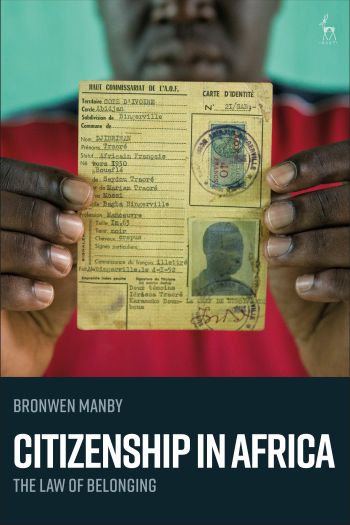
This magisterial work provides a comprehensive exploration of nationality laws in Africa, placing them in their theoretical and historical context. It offers the first serious attempt to analyse the impact of nationality law on politics and society in different African states from a comparative perspective.
Taking a four part approach, it firstly set out the theoretical framework before examining the history of nationality law in Africa from the colonial period. Part III considers case studies which illustrate the application and misapplication of the law in practice. Finally, the concluding section explores the relevance of the law for questions of 'belonging' in Africa. Ambitious in scope and compelling in analysis, this is an important new work on citizenship in Africa.